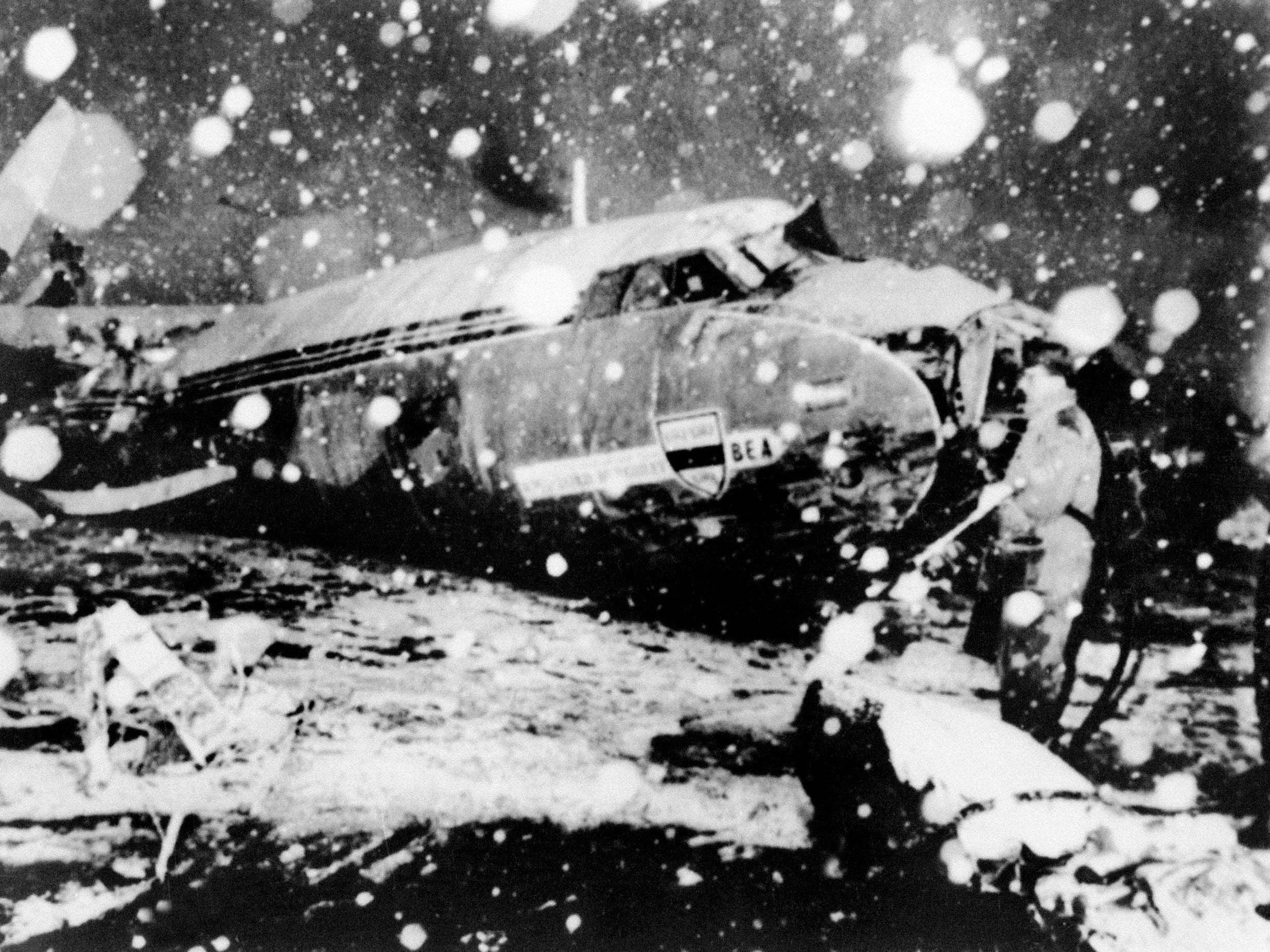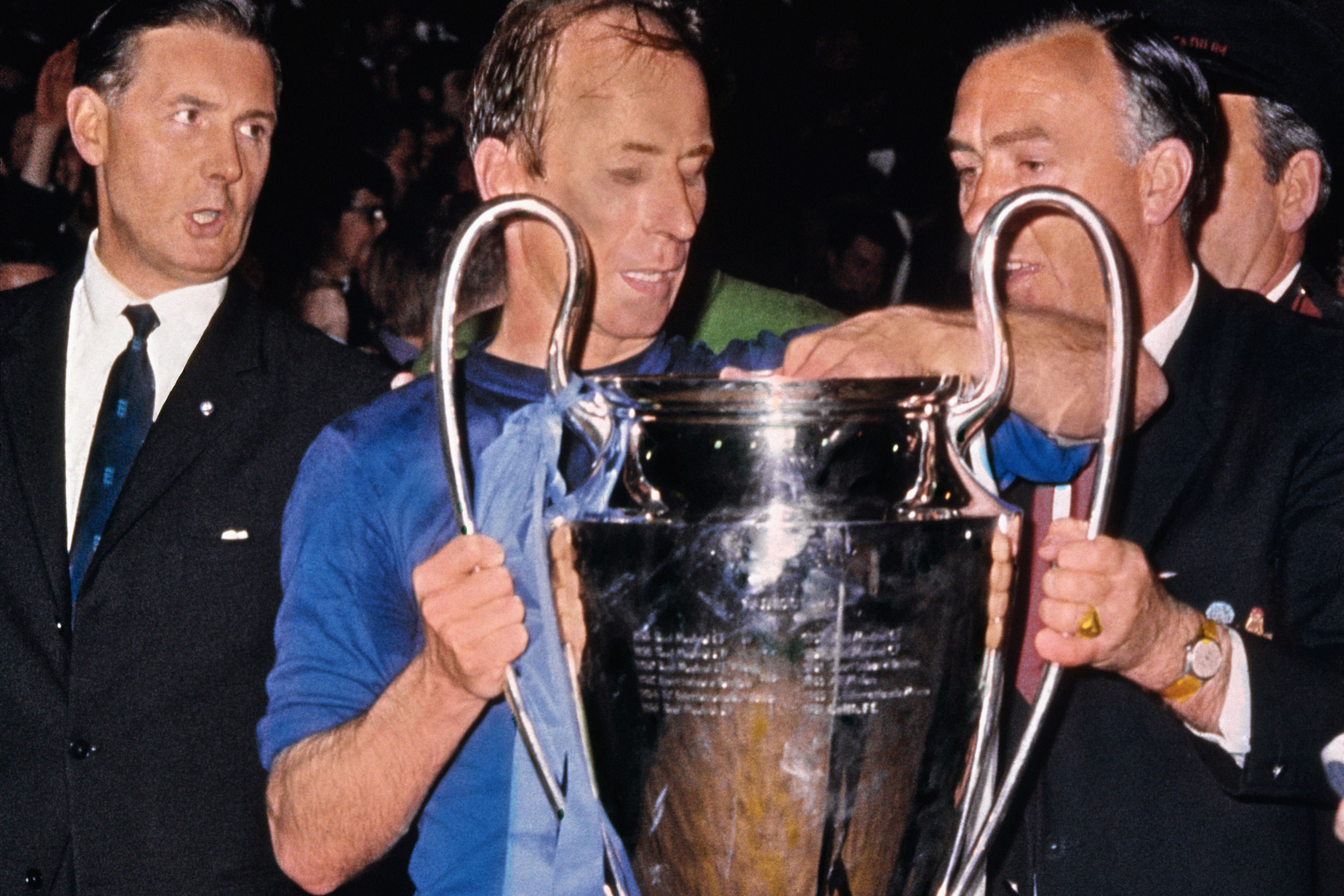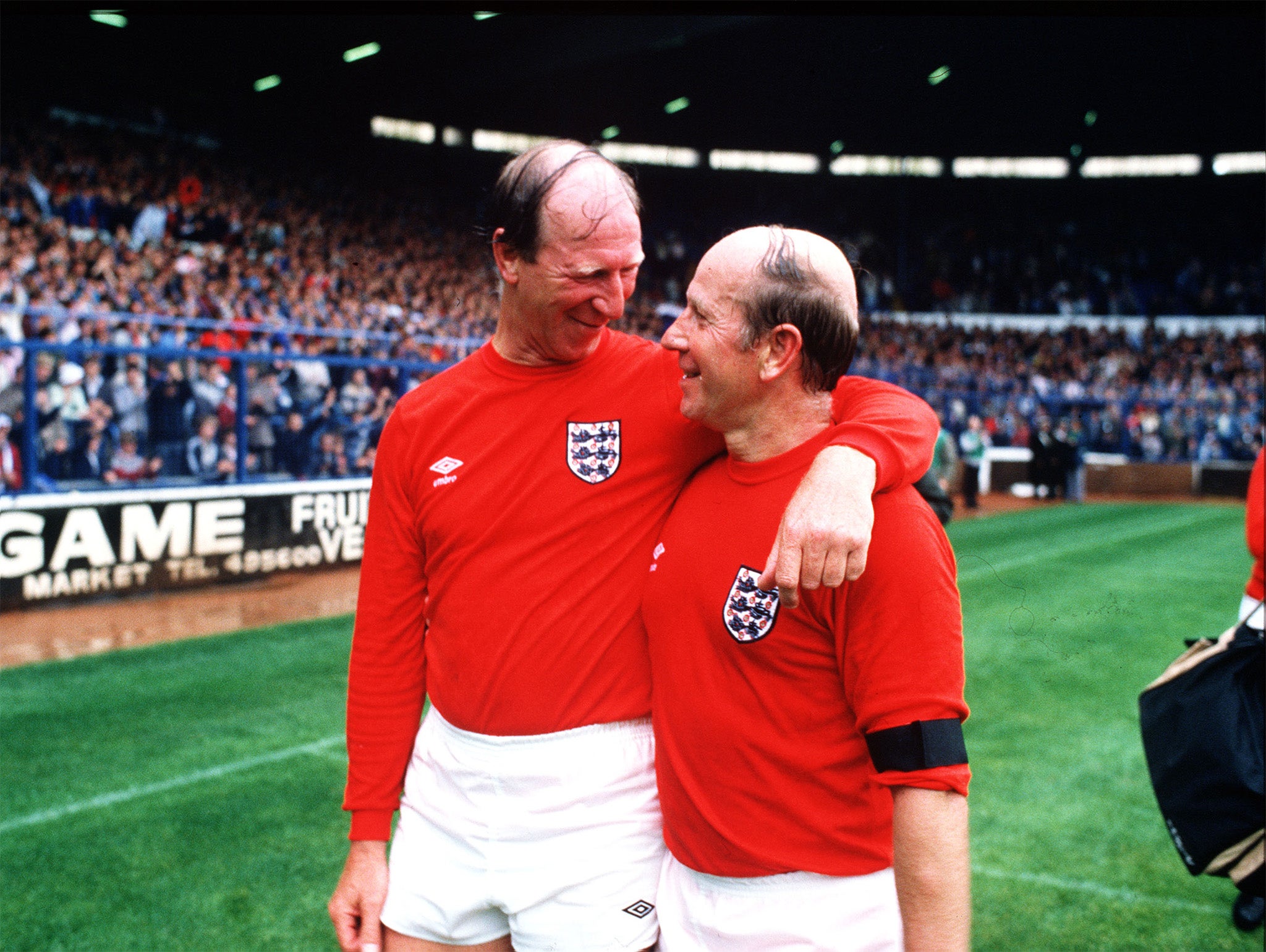Sir Bobby Charlton: Timeline of a great from Munich disaster to World Cup glory
A closer look at Charlton’s extraordinary life and legendary career for Manchester United and England
Manchester United and England great Sir Bobby Charlton has died aged 86.
Charlton was a key member of England’s victorious 1966 World Cup team and also enjoyed great success at club level with United, who became the first English club to win the European Cup in 1968.
Charlton’s European Cup success at United came 10 years after the Munich air disaster, which he and team manager Sir Matt Busby survived but which claimed the lives of eight of Charlton’s team-mates.
Here is a closer look at Charlton’s extraordinary life and legendary career:
1937: Football in the blood
Born in the coal-mining town of Ashington in Northumberland. Charlton grew up in a colliery terrace. Football ran in the blood; as well as his brother Jack, Bobby's mother was from the famous Milburn family, her cousin Jackie Milburn was a Newcastle United great in the 1940s and 1950s.
1950s: Early success
Bobby signed for Manchester United on New Year's Day 1953, aged 15. Won three consecutive Youth Cups, in a team that included the rest of the Busby Babes, including Albert Scanlon and the great Duncan Edwards. Made his debut in October 1956 as United won the league.
Late 1950s: Munich and beyond
United's defining tragedy happened in Munich on 6 February 1958. The story of the crash that killed 21, including eight players, is told in a new BBC film starring Skins' Jack O'Connell as the midfielder. Manager Matt Busby rebuilt the team around survivor Charlton, and they reached the FA Cup final. The month before the final, aged 20, he made his England debut against Scotland and scored.

1966: On top of the world
The final frontier in United's rebuilding was Europe; and Charlton scored a brilliant goal in the 5-1 quarter-final second-leg win at Benfica. They lost in the semi-finals, but Charlton went on to have a glorious World Cup that summer: scoring both goals in England's semi-final win over Portugal, and winning player of the tournament and the Ballon d'Or, sealing his place in the football pantheon.

1968: Triumph in Europe
Busby and Charlton's journey was completed with triumph in the 1968 European Cup. Charlton captained the side and scored the first and final goals of a 4-1 win over Benfica at Wembley. Ten years on from Munich, the promise of the Busby Babes was fulfilled. United was the first English team to win the European Cup.

1970s: End of a glorious career
Charlton went to the 1970 World Cup in Mexico but England could not retain their crown. He played his last United game in 1973, setting a record of 758 appearances, only broken by Ryan Giggs in 2008. After some brief managerial roles at Preston and Wigan, the England great has worked at his alma mater since 1984 as the club's director and ambassador.

2000s: Family reconciliation
His autobiography reveals the extend of the feud with brother Jack and his mother Cissie, who had a falling out with Bobby’s wife Norma in the 1990s. But the brothers embrace on stage as Jack presents Bobby with the BBC Sports Personality of the Year Lifetime Acheivement award in 2008.
2020s: Decline in health
Charlton is diagnosed with dementia in 2020 and his public appearances are more limited. A statement by his family on 21 October 2023 announces his peaceful passing that morning. He leaves Geoff Hurst as the last living England player of the 1966 World Cup final.
Join our commenting forum
Join thought-provoking conversations, follow other Independent readers and see their replies
Comments
Bookmark popover
Removed from bookmarks